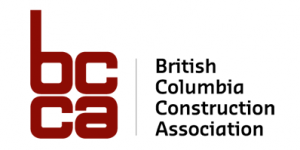Construction File:
What is Fair, Open and Transparent Bidding
Download the PDF Version.
Ensuring that a bidding process is fair, open and transparent is perhaps the second most important element in the bidding process to contractors preceded only by whether they were the successful bidder on the project. Fair and open bidding is about promoting a transparent bidding process that eliminates favoritism or improper influence, while being diligent with the taxpayer’s money. Awarding contracts in a nontransparent manner, creates a cloud of uncertainty and suspicion that calls into question the propriety of contracts.
In response to what is clearly a new bidding environment in the current market place here are some elements that we believe are fundamental to fair, open and transparent bidding:
- Public Bidding – Ensure that projects are not single sourced, with the use of established thresholds for bidding that fall within some accepted industry standards. Refer to the BCCA Policy for Thresholds for some guidance (http://bccassn.com/policies/thresholds.html).
- Public Openings – Non public openings are the first step that trigger questions about the transparency of a bidding process. Contractors will question whether the bid recipient is allowing themselves the opportunity to award on some questionable conditions as a result of favoritism or improper influence.
- Bid Acceptance – Clauses in the Instructions to Bidders should treat all contractors fairly. Where a clause allows the bid recipient the option to accept non-compliant bids this can be perceived to show preference to one contractor over another. For one contractor the non-compliance is accepted, yet for another it may not be accepted; this is favoritism and is not transparent bidding.
- Subjective Bid Evaluation Criteria – When evaluating bidders on criteria other than price (e.g., expertise, management services or schedule) such criteria needs to be described and weighted adequately in advance in order to avoid post-award challenges: The extent to which the weighting criteria are disclosed in advance of the tender closing can affect the ability of the bidders to coordinate their bid. On Construction Management projects, where respondents are allowed to perform work on a cost plus basis, it must be clear if the accommodation is for temporary work only or if it is to also allow the CM to perform trade contractor work. Where CMs are performing trade contractor work on a cost plus basis the rates they charge for this work can affect what they will charge as a CM fee; costs for administering the construction can be included in the rates being charged for cost plus work. To ensure fairness in evaluation of the responses all respondents must have an equal opportunity to compete on cost plus work. Where subjective criteria are being used it would be recommended to employ the services of a knowledgeable third party fairness monitor.
- Trade contractor bidding – As trade contractor work on a project often constitutes 80 to 90% of the work, they as well deserve to be treated in a fair, open and transparent manner. Closing trade contractor bids through the BCCA Electronic Bidding System adds transparency to this process.
It may be a cliché but it is the reality; not only do public sector bidding authorities need to be fair, open and transparent but they must appear to be fair, open and transparent. The right thing to do is always the right thing and in this highly competitive environment everyone will be best served with clear principled processes.


